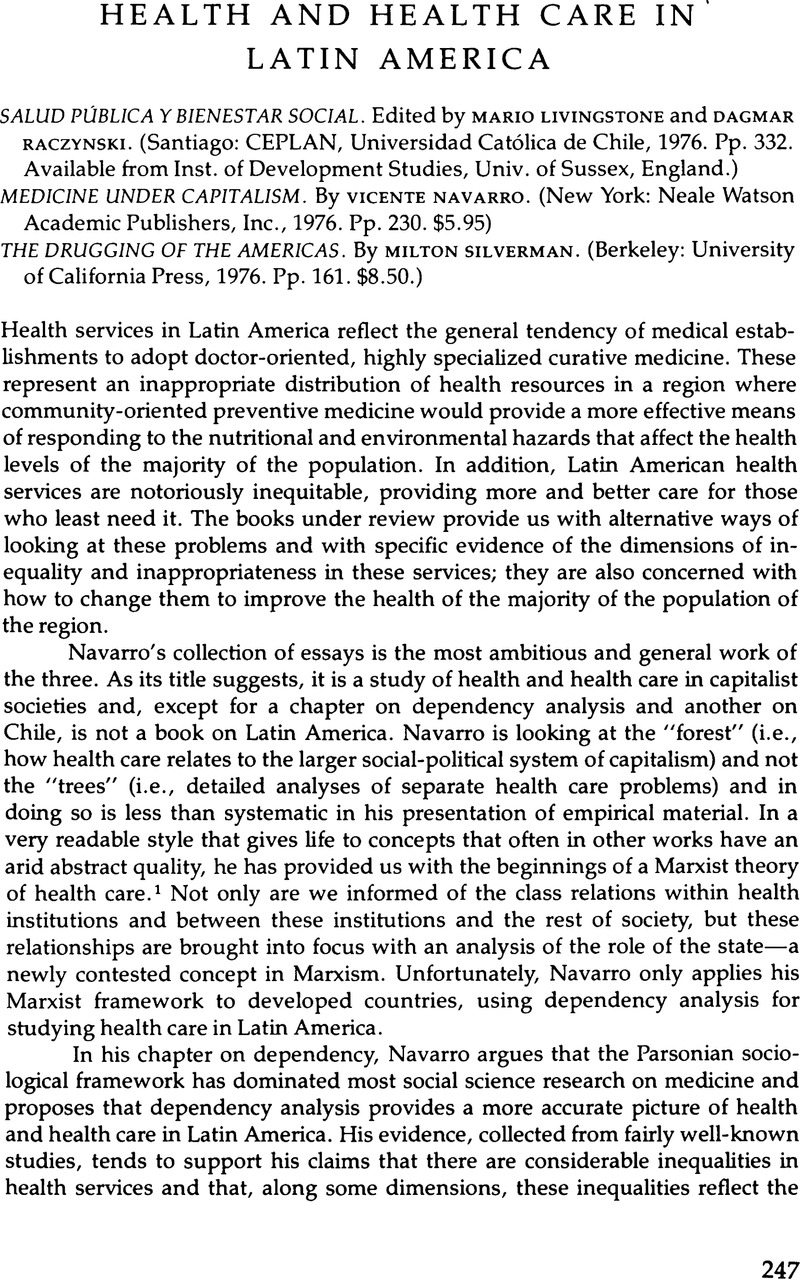Published online by Cambridge University Press: 24 October 2022

1. For English-reading audiences, Navarro clearly breaks new ground here. His is perhaps the only generally available work on health that uses an explicitly Marxist analysis.
2. For a complementary view of Chile see: Howard Waitzkin and Hilary Modell, “Medicine, Socialism, and Totalitarianism: Lessons from Chile,” The New England Journal of Medicine 291, no. 4, (25 July 1974):171–77.
3. For an interesting follow-up on this argument see: Sally Guttmacher and Ross Danielson, “Changes in Cuban Health Care: An Argument against Technological Pessimism,” International Journal of Health Services 7 no. 3 (Fall 1977).
4. See Milton Silverman and Philip R. Lee, Pills, Profits and Politics (Berkeley: University of California Press, 1974).
5. See Maurice King, ed., Medical Care in Developing Countries (New York: Oxford University Press, 1966); John Bryant, Health and the Developing World (Ithaca, N.Y.: Cornell University Press, 1969); David Morley, Paediatric Priorities in the Developing World (Woburn, Mass.: Butterworth, 1973); World Bank, Health Sector Policy Paper, March 1975.
6. The few exceptions include Milton I. Roemer, “Organizational Issues Relating to Medical Priorities in Latin America,” Social Science and Medicine 9, no. 2 (Feb. 1975): 93–96 and Antonio Ugalde, “Los procesos de toma de decisiones en el sector sanitario y sus implicaciones políticas,” Papers: Revista de Sociología 5 (Universidad de Barcelona, 1976).